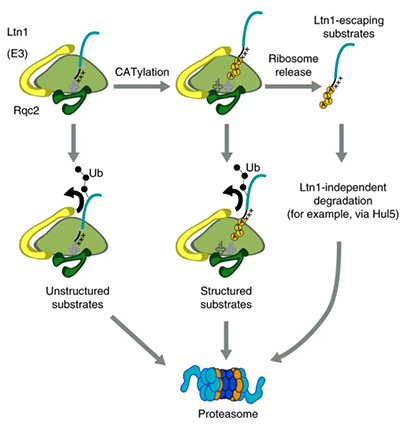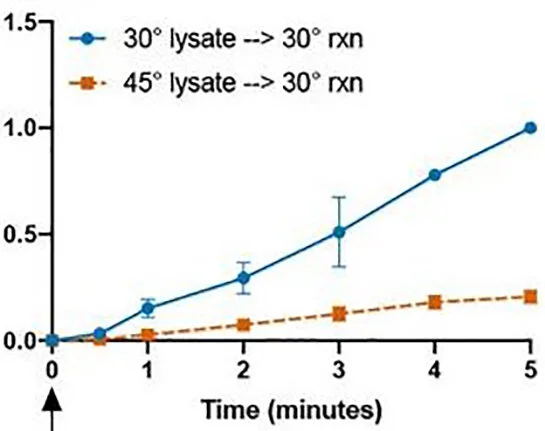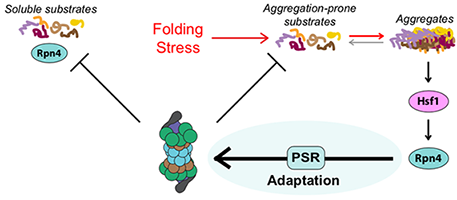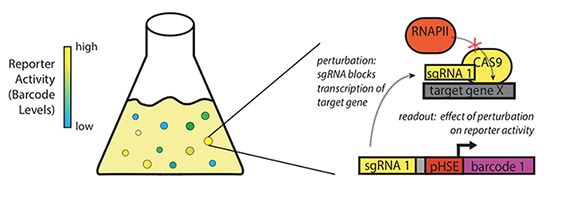Research
Highlights
Ribosome-associated quality control (RQC) and “CAT tails”, a ribosome-mediated protein modification we discovered that marks defective proteins for degradation. Learn more.
“Viscoadaptation”, a homeostatic pathway we discovered that regulates viscosity, a fundamental biophysical property of the cell. Learn more.
Systems-level analysis of protein quality control in the cell, including the heat shock response and ubiquitin proteasome system. Learn more.
ReporterSeq, a new technology to investigate the activity of cellular pathways with the throughput of pooled CRISPR screens and the precision of targeted assays. Learn more.
The Brandman Lab seeks to understand the molecular and systems-level features of protein quality control and stress responses in health and disease. As part of our work on Ribosome-associated Quality Control (RQC), a process that monitors protein synthesis for defects, we discovered a protein modification called a “CAT tail” that targets defective proteins for degradation. This discovery created a new field of biology that is only beginning to take shape (Shen et al., 2015; Sitron and Brandman, 2019; Sitron et al., 2020). Our work on the systems biology of protein quality control has revealed new principles and pioneered approaches for quantifying stress-response pathways in vivo (Alford and Brandman, 2018; Work and Brandman, 2019; Alford et al., 2020). We developed a new pooled screening method called ReporterSeq that allows us to measure the induction of any transcriptional pathway subjected to genome-wide CRISPR perturbations in diverse stress conditions in a time-resolved manner (Alford et al., 2020). Our discovery of viscoadaptation (Persson et al., 2019) expanded the study of how cellular viscosity is controlled and influences multiple aspects of life, including pathways our lab focuses on such as protein quality control. Through our exploration of molecular mechanisms, systems-level features, and the development of broadly applicable new technologies, we are poised to continue making advances in understanding protein quality control and cellular stress responses.




